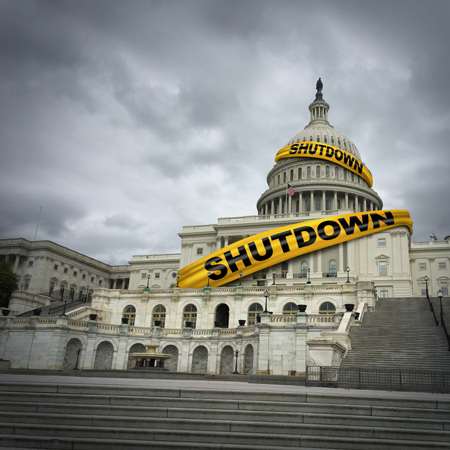
"The federal judiciary will tap funding, such as court fee balances, to temporarily continue paid operations during the government shutdown. Federal courts expect to continue paying staff members through Oct. 17 by using funds that aren't tied to a new congressional appropriation, according to an Oct. 1 press release. Because the Constitution protects the salaries of federal judges, they will get paid no matter what, Bloomberg Law explains."
"Most proceedings will continue through Oct. 17, and deadlines won't be affected. Hearings and filing dates may be rescheduled in cases in which an executive-branch attorney isn't working because of the shutdown. The U.S. Supreme Court also plans to rely on funds that aren't subject to annual approval "to maintain operations through the duration of short-term lapses of annual appropriations," a spokesperson told Bloomberg Law."
"Typically, civil lawyers in the Department of Justice don't work during a shutdown, unlike lawyers handling criminal cases, the Bloomberg Law article explains. Some federal judges, however, are refusing to pause civil cases involving the federal government. According to Bloomberg Law, some of those cases involve access to IRS records by the Department of Government Efficiency, the DOJ's antitrust lawsuit against Live Nation Entertainment Inc., federal grant restrictions targeting diversity initiatives, federal layoffs and a ban on Medicaid reimbursements for Planned Parenthood."
The federal judiciary will use non-appropriated funds, such as court fee balances, to temporarily continue paid operations during a government shutdown. Federal courts plan to pay staff through Oct. 17 using funds not tied to a new congressional appropriation. The Constitution protects federal judges' salaries. Most proceedings and deadlines will continue through Oct. 17, though hearings and filing dates may be rescheduled when executive-branch attorneys are absent. The U.S. Supreme Court will rely on funds not subject to annual approval to maintain short-term operations. When funds run out, the Antideficiency Act will govern operations, potentially requiring core staff to work without pay and other employees to be furloughed.
Read at ABA Journal
Unable to calculate read time
Collection
[
|
...
]